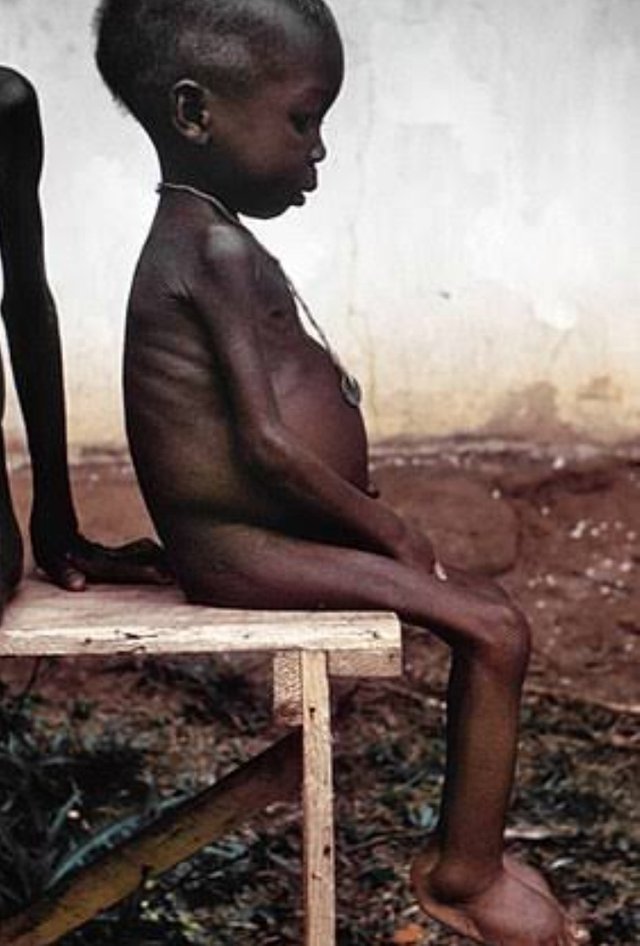Colonialism has always been a thing of history in the minds of African world .
It has been a thing of misconception making people to have different option on what and how colonialism start in Africa.

WHAT IS COLONIALISM?
Colonialism is a practice or policy of control by one people or power over other people or areas, often by establishing colonies and generally with the aim of economic dominance.
The history of external colonisation of Africa can be dated from ancient, medieval, or modern history, depending on how the term colonisation is defined. In popular parlance, discussions of colonialism in Africa usually focus on the European conquests of the New Imperialism and the Scramble for Africa (1884-1914) era, followed by gradual decolonisation. The principal powers involved in the modern colonisation of Africa are Britain, France, Germany, Portugal, and Italy. In nearly all African countries today, the language used in government and media is the one imposed by a recent colonial power.
In ancient times, people from Southern Europe and Western Asia colonized North Africa, while people from Southeast Asia colonized Madagascar.
In the Middle Ages, North and East Africa was further colonized by people from Western Asia.
In the Modern Era, Western Europeans colonized all parts of the continent, culminating in the Scramble for Africa in the late 19th century.
PURPOSE OF COlONIALISM IN AFRICA
The colonial masters who invaded /who controlled Africa had a huge purpose of coming to Africa.
The colonization of Africa by European powers was
necessitated by several factors. Notable, among the
factors was the emergence of the industrial revolution
which brought about a rapid change in the socio-economic
transformation and technology of the European countries.
The industrial revolution led to increase in production.
The progress in the industry went faster than the progress
in agriculture. It was becoming increasingly hard or
diffi cult for the agriculture to satisfy the demand for raw
materials required in the industries. There was therefore,
the need for the European powers, for example, the
British to go outside the country to look for additional
raw materials. Furthermore, as a result of the decline in
agricultural production, there was the problem of how to
produce enough or adequate food to feed the fast growing
urban population. In other words, the rural areas in
Britain for example, were fi nding it increasingly diffi cult
to produce enough food to feed the increasing urban
population. Similarly, there was also need for market,
not only for the production of raw materials but for food
to sustain the increasing population. As a result of rapid
increase in technology, new products were produced at a
faster rate than the populations could dispose of. Africa
with her large population constituted a ready market
for such products. Furthermore, as result of low wages
paid to workers, there was accumulation of profits by
the industrialists at a faster rate than they could invest
back. There was under-utilization of capital in Europe at
this time, and a need to fi nd where these capitals will be
transported and invested for the creation of new products.
It was during this process of investment of the surplus
capital that imperialism emerged.
BAD EFFECT OR NEGATIVE IMPACT OF COLONIALISM IN AFRICA

The greatest negative impact of colonization was the exploitation of the natural resources by foreigners which did not benefit the local communities, but instead the colonizers. To gain access to the natural resources, there were major landscaping; which destroyed the otherwise peaceful lifestyle of the locals.
Forests were cleared to get timber for ship-building and construction of houses in Europe. Trees were also cut down to provide firewood that was needed to power the steam engine trains. In addition, the trees cut down provided woods which were used to construct rail tracks.
All these activities destroyed huge tracts of forests in the African colonies, the effects were almost catastrophic. The cutting down of trees resulted to increased soil erosion since most forest cover was destroyed. Soil erosion led to siltation in rivers that greatly affected fishing activities. The communities that relied on fishing suffered the consequences of siltation because fish greatly reduced in numbers in the affected areas.
The cutting down of trees contributed greatly to negative impacts of the climate in the Africa continent. The cutting down of trees reduced the amount of rainfall received in African states and also altered the wet and dry seasons which has made it difficult to for farmers to predict when it will rain and thus not able to determine when to plant.
Colonialism also disrupted the way of living of local communities and the development of the local societies. During the colonization process communities had to be moved and relocated to create white settlement areas for large scale farming. This was the fertile areas where the locals derived their livelihood. This movement was always done without consulting the local communities and they were always resettled in areas where it was less productive or less fertile. Any resistance to such resettlement resulted to death.
Colonization also brought about different types of diseases. Some of the diseases were not common with the local communities. An example of such disease that was introduced by the settlers is Rinderpest disease which affected the livestock of the Shona people of present day Zimbabwe and Botswana.
Moreover, jiggers which are even nowadays menace in many parts of East African regions were brought by the Indian workers who played a pivotal role in the construction of rail way line that links Kenya port and Uganda. In south Rhodesian, (present day Zimbabwe), the colonizers deliberately infected the local communities with different diseases to eliminate them and their livestock. Anthrax bacteria were used or put into the rivers so as to impoverish the locals by reducing their population and their animals.

The European powers divided the African continent into colonies for themselves that led to artificial creation of national boundaries example : NIGERIA
The boundaries were arbitrary and the locals were not consulted or taken into consideration. A boundary could run through the middle of one community and several communities with different cultural practices were under one colony.
This led to loss of sovereignty and the right to control their own destiny and to play a role in their own development or even conduct their own diplomacy and management of their resources. These boundaries led to the creation of present day independent states of Africa. Their effects are still felt today in the form of conflicts among communities in a country, some have even led coups and even genocides, as it was experienced in Rwanda in 1994.
Imposing of coercive and repression state rule by the colonialists completely destroyed the system of leadership that existed there before. The local societies were initially stable with their own system of governance and well structured cultural norms and institutions.
According to Ilffe (7) the colonialists imposed their own leadership on the people, by selecting their preferred people to rule over people. They introduced the subdivisions of land ownership, where everybody owned a piece of land for cultivation and other activities. There before communities were used to communal land ownership. The land was owned by the community and everything was looked from a communal perspective.
Colonization introduced capitalism in Africa which never existed before. After independence in the 1960’s, the same leaders who were imposed on the locals, and who were always viewed as collaborators with the Whiteman were the ones who took over leadership and acquired a lot of wealth for themselves. This leadership allowed a concession to companies from former colonial masters to continue doing their business to date.
Neo-colonialist is the new term that is being used to refer to the present colonialist.
The same have resulted in the formation of movement such as second liberation, by dissenting communities who feel they are disenfranchised and are wallowing in poverty and are unable to afford good education for their children like those who are in leadership.
Colonialism too set a pace for urbanization in Africa and which have been accompanied with emergence of many social evils. Some of the challenges that are associated with urbanization include growth of slums and increases of crime in urban centers in Africa. The government has tried to come up with solutions, but they have not been successful in curbing the challenges. Poverty is also rampant, both in urban and rural areas.
Such levels of poverty were not widespread in the pre-colonial days, since the community took care of all the members of the community .The initiation of urbanization facilitated rural-urban migrations which has resulted to majority of young people migrating from rural areas to urban areas to look for white color jobs and employments in industries as laborers.
Those people that are not successful in securing employment opportunities in the urban areas often engage in criminal activities to earn their livelihood. Others engage in prostitution to earn their daily bread. This has resulted to the wide spread of HIV/AIDs in African States (Magnet 19).
Colonialism had a negative impact in the economies and social system of the African states; most of them are still felt today and the effects reverberating into future for many years to come. Some of the negative impacts that are associated with colonization include; degradation of natural resources, capitalist, urbanization, introduction of foreign diseases to livestock and humans. Change of the social systems of living. Nevertheless, colonialism too impacted positively on the economies and social systems.
You have been upvoted by @whitestallion and I’m voting with the Steemit Community Curator @steemcurator04 account to support Nigerian author's.
Follow @steemitblog for the latest update on Steem Community.
Downvoting a post can decrease pending rewards and make it less visible. Common reasons:
Submit
Thanks@steemcurator04
Downvoting a post can decrease pending rewards and make it less visible. Common reasons:
Submit